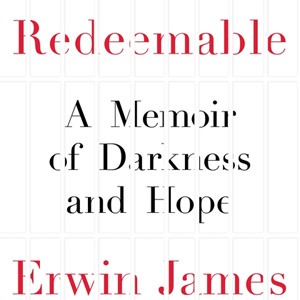
Life is Hard: How Philosophy Can Help Us Find Our Way (Hutchinson Heinemann) by Kieran Setiya
Kieran Setiya is an accomplished analytic philosopher and, increasingly, one of the finest public philosophers working today. His latest book, Life Is Hard, was written during the pandemic and its title certainly captures the present mood. But Setiya doesn’t just mean that life is hard now. After all, haven’t infirmity, grief and injustice always been with us, and won’t they remain so? Setiya’s focus is on the core features of life that make it seemingly inevitably hard.
The book is a rich and rewarding read, reckoning with everything from personal failure to the meaning of life. The philosophy is fed by examples from Setiya’s life: his teenage heartbreak, the onset in his twenties of chronic and excruciating pelvic pain, his mother’s Alzheimer’s disease, his involvement in climate activism.
Setiya is surely right that there are hardships that almost all lives will face, sooner or later; such is the human condition. His aim is to help us in “making the best of a bad lot”. He examines the ingredients that make life hard one by one, but what emerges is a view of life as a whole: humanistic, rooted in our social nature, and notably influenced by the novelist and philosopher Iris Murdoch. And if you have a stereotype of the philosophy professor as coldly rationalistic, then the centrality that Setiya gives to love might surprise you. “We are made for love,” he writes, “and we are lost without it.” Personally, I most often found his remarks to be moving and true. Some, perhaps, might find the book overly sentimental.
Life Is Hard reveals the benefits of bringing careful analysis to the problems of life, but it also shows that this kind of philosophy calls for emotional intelligence. What it offers, ultimately, is consolation by acknowledgement. Setiya doesn’t try to magic away the problem of grief, for example, as the Stoic philosopher Epictetus did. Rather, he gives us words to understand our grief better, and so perhaps helps us live with the reality of love and loss. He supports this perspective throughout with a wonderful diversity of sources from literature, social science, psychology and history – from the Bhagavad Gita to Gerrard Winstanley to Annie Ernaux.
The discussion of failure is particularly illuminating. Setiya seeks to demonstrate how philosophy can liberate us, by showing that it’s a mistake to think of our lives in terms of one big narrative, at the end of which we’re either “winners” or “losers”. He also highlights the social forces that encourage us to think this way. Indeed, he shows how we must move beyond the logic of the self-help genre, by insisting on the social source of our problems and, where possible, their social remedy.
This is why Setiya looks outward as well as inward, in part because when you look inward what you discover is how the world out there has made you. Perhaps the book’s vision is most inspiring and ambitious when he argues that the meaning of life itself is ultimately a political issue. Life Is Hard makes a compelling case that whether human life is meaningful depends on whether we give it meaning by collectively striving towards justice for humanity as a whole. Here, unlike in the case of our individual life stories, Setiya encourages us to think of the human story in terms of a grand narrative. He acknowledges the similarities with those great German philosophers Hegel and Marx, but unlike them he doesn’t see any historical destination as inevitable. It all depends on whether we get our act together.
Life Is Hard is a weighty and satisfying book. Some people might find it a little too earnest, even with Setiya’s likeable sense of humour. The seriousness feels so mandatory that it is tempting to rebel against it. Life is hard, the title tells us, and Setiya offers no superficial escapes.
This piece is from the New Humanist summer 2023 edition. Subscribe here.

